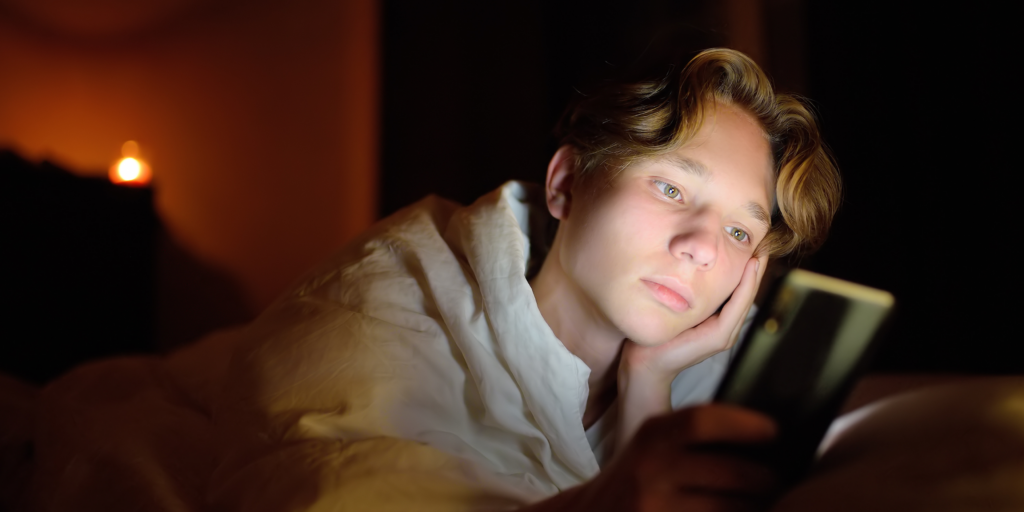
Is there anything left to say about Netflix’s new drama Adolescence? Stephen Graham’s harrowing series exploring the toxic online incel culture and its devastating impact on young people has gripped the nation over the last few weeks and sparked endless discussions.
Adolescence isn’t just another drama – it’s a powerful and chilling reminder of the dangers facing women and girls today. Behind the fictional storyline lies a dark reality playing out in bedrooms, classrooms and online spaces of young people across the country. This reality is shaping how adolescent boys perceive women and girls, contributing to a disturbing rise in abuse.
The series follows 13-year-old Jamie Miller’s arrest after he is drawn into a violent online world of toxic masculinity, misogyny and incel culture. Through social media and forums, Jamie is exposed to harmful content that normalises and glorifies abuse and violence toward women. Once a young person engages with this material, platforms like YouTube, TikTok and Instagram push even more extreme content their way, reinforcing distorted views about masculinity and relationships.
The ‘manosphere’ promotes extreme anti-women ideologies
In the show, Jamie’s family is completely unaware of the deadly world their son is being pulled into. They believe his evenings are spent gaming in his room, but behind his bedroom door, he’s being radicalised by extreme anti-women ideologies in the manosphere – online communities that promote toxic masculinity, anti-feminism and hatred toward women. Jamie’s family are only made aware of his involvement in this dark online world when it’s too late – when he is arrested for the brutal murder of a female classmate. A tragedy that leaves two families shattered and a community in shock.
Adolescence is fictional, but the issue it tackles is very real: the growing link between online misogyny and real-world violence against women and girls.
Toxic online spaces are influencing the views of young boys
We like to think our kids are safe in their bedrooms, but the online spaces they spend time in are dangerous and influencing how they think and act toward women and girls in real life. They’re bombarded with content that convinces them that women’s choices don’t matter, that women exist for male approval and that violence is a justified response to rejection. Adolescence takes this to the extreme when Jamie horrifically murders Katie after she turns him down.
Before her death, Katie is branded a bully simply for rejecting Jamie and using emojis to mock him on social media. This is a common tactic – flipping the narrative so that boys are seen as victims, while women and girls are shamed for saying no. It’s part of a growing culture where rejection is seen as cruelty, fuelling resentment toward women and overlooking the real victims.
What needs to change?
Education around love, sex and relationships needs to start early. More funding must be provided for preventative education in schools, PRUs and youth centres. This is something Oasis Domestic Abuse Service is calling for as a matter of urgency.
Children as young as primary age should be learning about healthy relationships, consent and how to stay safe online. Young people also need non-judgmental spaces where they can talk openly about peer pressure, sexuality and the media they’re consuming.
Parents need support to understand the digital world their kids are growing up in and feel confident having honest conversations about respect, gender equality and how to treat other people.
We must hold tech companies accountable for the harmful content they allow and the algorithms that push it to children and young people.
At Oasis, we’ve also seen a concerning increase in women we support being coerced into online sexual exploitation by their abusive partners. This must stop.
Oasis CEO Claire Williams is pushing for more funding for preventative work, stricter online regulations and a halt to the glamorisation of sexual content. She says:
“We are deeply concerned about the rising trend of online sexual exploitation, particularly affecting young women and girls in our community.”
Let’s not wait until it’s too late
We can’t just react when tragedy strikes. How many more headlines about men killing women do we need to see before we take action?
*Right now, 1 in 4 women in England and Wales will experience domestic abuse in their lifetime. Every five days, a woman is killed by an abusive partner or ex. 41% of girls aged 14-17 in intimate relationships have experienced some form of sexual violence from their partner. Without early intervention and education, these statistics will only continue to rise.
This is a growing crisis that needs urgent action. We must demand more to protect young people and prevent more lives from being lost to the warped and dangerous ideology of toxic masculinity.
This series has forced us to confront uncomfortable truths about the online world our young people are growing up in. It has sparked difficult conversations, triggered national debates and brought the issue into the spotlight. But awareness alone won’t change anything. When the noise around Adolescence dies down, the real dangers will still be there, existing within young people’s phone screens and hidden behind closed bedroom doors.
- Refuge report

